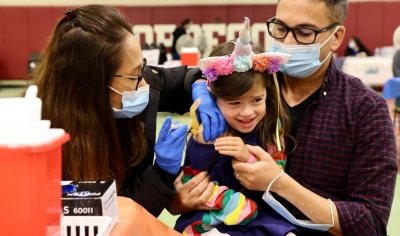It can be challenging to watch your loved one suffer from addiction, especially if they are having difficulty accepting the fact that they require treatment. Unfortunately, loved ones trying to force someone into treatment can worsen things. It is crucial to understand what actions you should take if your loved one refuses the treatment they need.
How To Help an Alcoholic Who Refuses Treatment
It can be difficult for people suffering from alcohol addiction to admit that they have a problem. It can seem as though you have failed an alcoholic when they refuse treatment for their alcoholism. Often, an alcoholic won’t be able to find success in treatment until they realize and accept that they have an addictive behavior.
You may need to intervene if a loved person in your life is refusing to act on their own. This can be a difficult situation, so it is essential to consider what you should say and do. These simple steps from Haven House Recovery will help you navigate the situation and get your loved ones the care they deserve:
People who care for loved ones suffering from addiction often have difficulty admitting to it. You cannot help anyone if you’re in denial. Recognize that there is a problem that has affected your loved one and that the situation can be life-threatening.
It may seem that accepting the situation is not going to have an impact on your loved ones. But, accepting the problem and preparing for any eventuality will allow you to be there for your loved ones
Do your research to understand your loved one’s drug and alcohol problems. You should be familiar with all the signs and symptoms of withdrawal. Learning about them helps you better understand your loved one’s withdrawal symptoms and the phases they will go through. This will also prepare you for any situation that may arise.
Addiction has many stages, and it may be difficult to know which stage your loved one is at. Talk to them and spend some time with them; this will help you determine if they are in the dangerous, dependent, or substance abuse stage. Knowing their current stage of addiction might make it easier for you to encourage them to seek treatment.
Substance abuse can affect a person’s ability to make decisions and clarity, and it can make them refuse treatment or help. Make an appointment for them to have a check-up; this will help them understand the risks and identify the problem before it worsens.
You can tell the doctor about your loved one’s addiction before seeing him. This will help him understand the situation and make it easier for you to identify any health problems. The doctor will give you their opinion on the best course of action to help the addict.
One of the most important things you can do for your loved ones is to let them know you are there for them, no matter what. Sometimes, being there for them as a friend is more helpful than talking to them as a loved one. It is best not to bring up their addiction or the treatment options. Avoiding the subject will let them know you understand the situation and are not being judgmental.
You will begin to notice a shift in their behavior. They may be willing to ask about therapy and treatments that might help. Continue to offer them the same support as before to keep them on the road to recovery.
After you have identified the problem and guided them in the right direction, it is time to help them realize they need professional help in the form of therapy, detoxification, or rehabilitation. Encouragement and reassurance are the best ways to keep them going. You should try to consult with an alcohol rehab in Virginia if you happen to reside near the area.
Try an intervention.
Recent research shows that intervention with an injunction placed on the individual is more effective in ensuring that loved ones receive the support they need. This may seem difficult for you both, but the positive change in your loved ones’ lives will be well worth it.
You might be wondering, “Should addicts have to be forced to receive treatment?” It all depends on the situation. Addicts are often unable to make conscious decisions for their lives. They must have the best support network possible. Your support and presence are crucial to the well-being of your loved one.
Forced addiction treatment can be complex for addicts, but it won’t do them any good if they don’t come to their senses. Intervention gives the addict a command and allows their family to intervene and help them get on the right path. It must be done to bring the addict back to consciousness and get the help they need.
Addiction is a complex, cruel disease, yet it is treatable. It’s tough when a loved one needs to stop using alcohol or other drugs but rejects treatment, which can affect everyone who loves and cares about them. Friends and relatives of addicts are sometimes shrouded in shame and silence. If your addicted loved one refuses treatment from reputable facilities, try to approach the situation with simple measures that you and other people can do.











